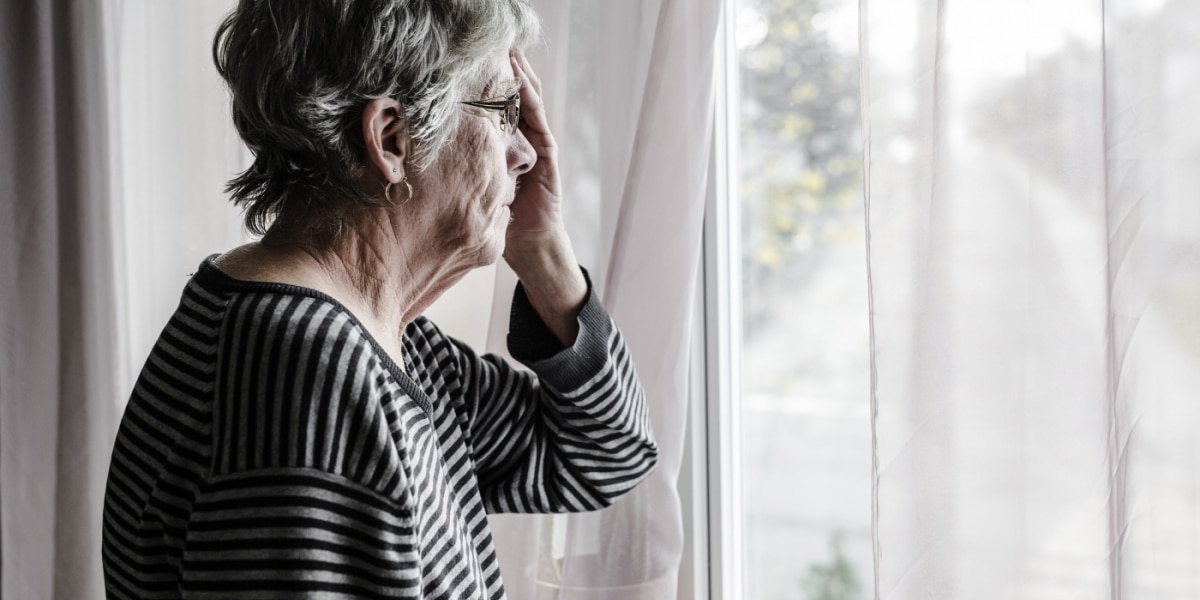
This week is Mental Illness Awareness Week, a week to educate and raise awareness of mental health. Mental illness doesn’t discriminate—it can affect anyone, both young and old. Knowing the signs is one of the first steps to identifying if you or a loved one are experiencing mental illness. These signs can differ depending on age group.
For this post, we focus on the early warning signs of mental illness in the elderly. According to the World Health Organization (WHO), 15% of adults 60 years or older suffer from some type of mental disorder. As the population ages, the number of older adults diagnosed is only projected to increase. By knowing the signs to look for, you can help your elderly loved one get treatment and live a better quality of life.
Below, we cover 10 signs to be aware of. There are many risk factors that are linked to mental illness, including change of environment, long-term illness, medication interactions, physical disabilities or limitations, and a poor diet. If you have any concerns, you should contact your elderly loved one’s primary care provider immediately for a proper diagnosis.
A change in appearance
Sudden change in dress or daily hygiene habits could be cause for concern.
Trouble maintaining daily routines
These can include personal routines, like the hygiene habits mentioned above, or a sudden inability or loss of interest in keeping up the house or the yard.
Confusion and problems with concentration
Acting disoriented in familiar settings, or the inability to focus or make simple decisions are signs to watch for.
Increased worry or stress
While we all worry from time to time, if you notice your loved one fretting and obsessing over small things that are out of character for them, this could be a sign that they’re struggling with mental illness.
A sudden decrease or increase in appetite
In addition to changing in eating habits, look for sudden weight loss or weight gain.
Withdrawal from society & interests that were once enjoyable
Your loved one may start isolating themselves from friends and family, or suddenly stop participating in interests and hobbies that they once enjoyed.
Anger & irritability that is out of character
Displaced anger, irritability, restlessness, and lashing out for no reason are signs that something may be wrong.
Difficulty sleeping, or sleeping much more than usual
A sudden change in energy or changes in sleep patterns could be indicators of depression.
Sadness, hopelessness, or unexplained feelings of guilt
Sadness from time to time is a part of life, but if this sadness is unexplained and lingers for more than two weeks, it could be a sign of a deeper problem.
Sudden memory loss
While some forgetfulness is part of the aging process, recent or short-term memory problems are cause for concern.
If your elderly loved one is showing any of these signs or symptoms, you should contact your primary medical care provider immediately for a timely diagnosis. The sooner an issue can be diagnosed, the sooner treatment can begin so your loved one can live their best life.
At Loretto, we take a holistic approach to care, addressing the mind, body, and spirit. Our system of care is dedicated to providing the highest quality of life possible for the individuals who use our services. Person-First care is what sets us apart, with over 2,500 dedicated caregivers and 19 specialized programs and facilities. Interested in learning how we can help you or a loved one? Contact us today! We can help you find the best programs and services for your needs.
